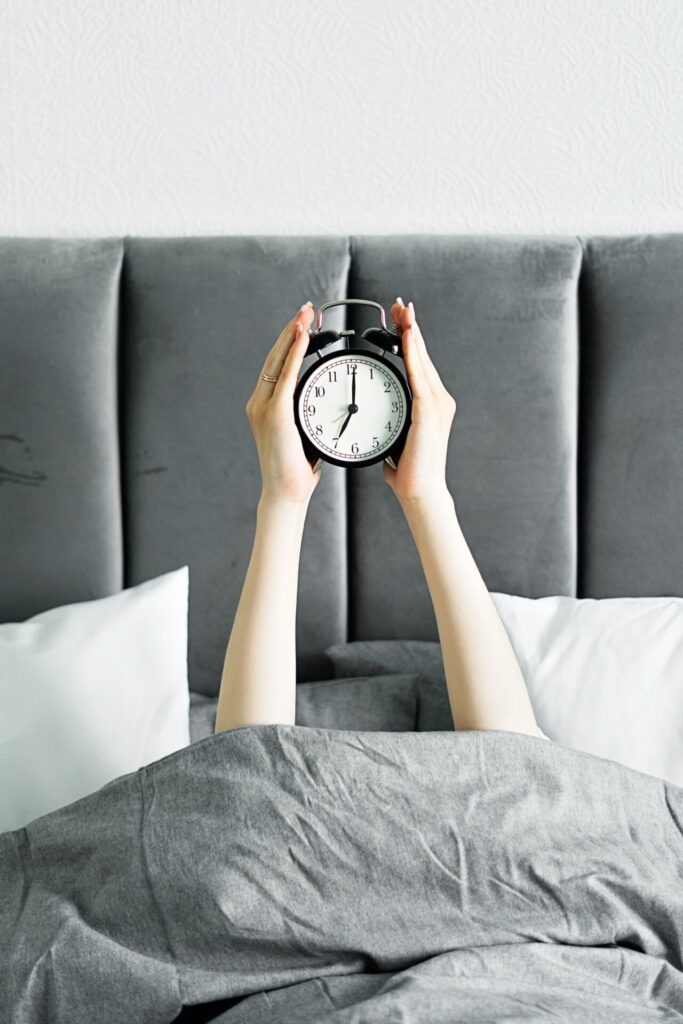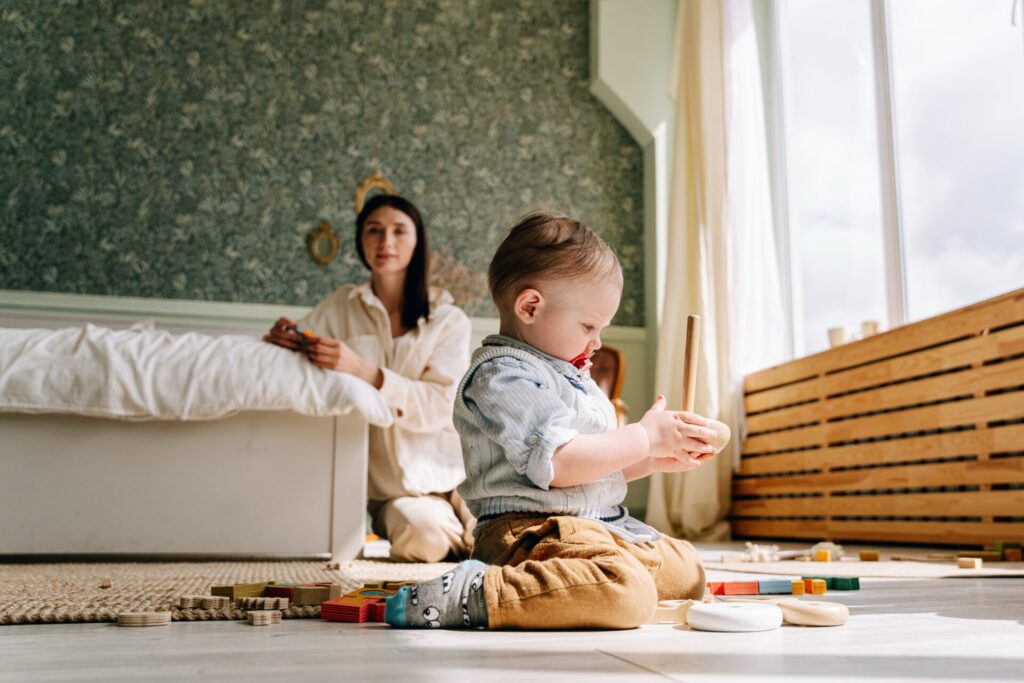Are you a new parent struggling to get a baby to sleep? Then you’ll find the following to be essential reading. The first year of an infant’s life is crucial to their mental and biological development. To help you get it right, here is some of the most important advice that top child care organisations have to say on the matter of managing your baby’s sleep.
After reading you will be able to:
- Be familiar with the sleep-wake homeostat
- Improve managing your infant’s sleep routine
- Help develop your child’s circadian body clock
- Appreciate what role feeding plays in infant sleep
- Know what science has to say about your baby’s sleep
- Respect the need for your own sleep as well as your baby’s
- Comprehend the meaning of night-waking and what to do about it
- Understand any negative thoughts you may be experiencing and combat them
- Apply 12 guidance tips collected from several of the best infant care organisations
We have collated some of the most useful advice from well-trusted organisations such as Lullaby Trust, UNICEF, and Basis to provide new parents with the best guidance on the workings of infant sleep and how to manage it during that first difficult year.
These are guidelines, not rules. No-one knows your baby as well as you do, so we encourage you to take the advice and experiment with it to find what works best for you and your child.


There Is No Set Amount Of Time That Your Baby Should Sleep
It is perfectly natural for new parents to be worried about their baby’s sleep, especially if they think their child isn’t getting enough. It doesn’t help that much of the advice from family, friends, and found online can be conflicting. There can be such a disparity between the sleep needs of different babies that comparing one infant’s routines with another is pointless. Nothing can be gained by considering your child’s sleep in relation to that of a family member’s baby.
In the first few months of life, babies wake frequently, and need a supportive parent nearby. Although not always easy, it is important to continue living an active, rewarding life during this time, as only experiencing fatigue, and feeling anxious all the time can be picked up on by the baby. Good, healthy sleep for a baby requires a good, healthy environment rather than ‘managing’.
The Science Behind Managing Your Baby’s Sleep
Unlike our limbs, sleep is not something we have conscious control over, which can make it difficult to get to grips with and adds to its mysterious nature. It is important to dispel any myths about sleep however, and by better understanding how sleep works, we can work with a baby’s normal biological regulators to maximise their sleep.
To fully understand sleep, we need to understand the two sleep regulators: The sleep-wake homeostat and the circadian body clock.

Under Pressure: The Sleep-Wake Homeostat
Sleep inducing hormones create a ‘sleep pressure’ which makes us feel increasingly tired throughout the day. The pressure in babies builds up much more quickly than it does in adults.
There is a greater need for sleep in babies the longer they stay awake, which makes falling asleep easier. To take some of this pressure off – so they don’t feel tired for most of the day – babies take short naps every few hours. You can notice when your baby is feeling sleepy just by watching them.
By managing to get your baby to sleep in the same room as you during the day, with the usual lighting and background noise that comes with it, they are able to nap just enough to release some of this pressure.
It’s About Time: The Circadian Body Clock
The human body clock is intricately involved in our ability to be alert, stay awake and fall asleep throughout each 24-hour period. It uses daylight to keep the correct time, which means experiencing sunlight and darkness each day is vital to our health. New-borns don’t develop a body clock until after a few months of life, so it is important for their health that they are nurtured into developing a good one.
A well-attuned body clock can be achieved by being active in the mornings, establishing a wake-up time. Generally spending time outdoors in the sunlight and engaging in enjoyable activities that will both stimulate and relax both you and your baby should help guide their body clock to a healthy sleep pressure build up.
You can find out more about circadian rhythms and body clock development in our guide to Understanding The Science Of Sleep.

Common Issues That Disrupt Baby Sleep
Although we may not be able to force an infant to snooze, we can make it easier by being aware of, and removing any obstacles that get in the way of managing your baby’s sleep.



Hunger often causes a baby to wake
Babies get stressed when they’re hungry, which makes them ignore the build up of sleep pressure. This means that if you withhold feeds, space them out, or wake them up after a feed, it can induce stress and make getting to sleep difficult. Once they start feeding their relaxation hormones become active again, and they return to feeling sleepy. They may even fall asleep during a feed, which is perfectly fine.
Stimulation, or lack thereof can prevent a baby feeling stressed
There’s a lot going on in your baby’s brain as they develop, and they need a rich environment to stimulate them and give those burgeoning minds something to do. When they haven’t had enough stimulation, they become stressed, which leads to sleep difficulties. Make sure you and your child have an enjoyable, activity-filled environment to promote good sleep.
Negative Thinking by parents can result in anxiety in the baby
No matter how much advice you take on, disrupted nights are inevitable when taking care of a baby. Negative thoughts can easily creep in during these times. Constant worry about being overtired can raise stress levels through the roof, making it difficult for you to sleep long after your baby has settled.
Feeling tired and having unhelpful thoughts the following day can lead to avoiding enjoyable activities both with and without your child. It might be difficult at first, but try to maintain a healthy perspective – be aware that any negative thoughts you may have are a result of being fatigued, and don’t cede any control to them. Focus on living an enjoyable life with your child and grab some rest whenever the opportunity arises.
For more information about the importance of parental sleep, read our article Why New Parents Should Focus On Their Own Sleep Too which highlights some of the newer attitudes in infant sleep research.
Of course, any negative thoughts that become overwhelming and are causing distress should be responded to by consulting a health visitor.
Dealing with the mind matters involved in falling asleep when managing a new-born is hard enough, but trying to do so on an uncomfortable bed makes it next to impossible. The last thing you need after managing to get a baby to sleep is a failure to do so yourself because of a lumpy mattress, or a limp pillow. Make sure you take care of your own sleep by finding a mattress that best suits your needs, and treating yourself to a pillow that will successfully aid you in slipping away into the land of nod.


12 Professional Tips On How To Promote Healthy Sleep For Both You And Your Baby
Keep the following in mind to support healthy sleep for your baby and yourself:
1. It is completely normal for babies not to sleep through the night until toward the end of the first year. Do not despair if you think your child is not developing in this area.
2. Feeling anxious can make sleeping almost impossible, as it isn’t fully under our conscious control. This applies to infants just as it does adults, so be sure to manage your emotions as best you can.
3. There is nothing unusual about babies wanting to feed at night. If you feel they are doing so a bit too frequently then we advise consulting a nurse or health visitor. Otherwise, bon appetite!
4. Don’t worry if your baby isn’t sleeping much during the day. Infants don’t actually need a lot of sleep in the daytime, even though they will likely take many short naps.
5. Body clocks are a vital component of healthy functioning adults. However, new-born babies don’t have them – they develop during the first few months. You can help them with this by providing plenty of cues such as sunlight and activity. Being active outdoors in the morning is particularly good.
6. It is possible to link your baby’s body clock with your own by waking and experiencing daylight at a regular time every morning. This can be effective even when a good night’s sleep has not been had. At the very least, lying in bed with the curtains open will help.
7. Try to align your baby’s night-time sleeping pattern with your own. Babies usually sleep best when they are put down to rest at around 9 – 10 pm.
8. Even though you may be feeling tired, it is important for the positive mental health of both of you that you remain active with your infant.
9. Schedule daily relaxation activities for you and your child.
10. Looking after a baby can be hard work. If you feel you need it then ask for support. Dispel any negative thinking by practicing Mindfulness exercises.
11. Place your baby in a safe place such as a cot or a Moses basket if you are feeling tired and need a rest.
12. It is important to speak to a health visitor if you believe your baby is experiencing excessive night waking or is very unsettled in the evening, or even during the day. However, new parents should be aware that night waking is perfectly normal. Due to their small stomachs, babies often wake for feeding, or cry because they want to attract a parent’s attention. Seeking reassurance that parents are still close by is one of the very few survival techniques available to helpless new-borns.
Remember – the choice is yours!
Ultimately, you are the one nurturing a parent-infant relationship. Therefore, you should do what you think is best for lying the foundations of managing your baby’s sleep. Feel free to experiment and discover what works best for you and your baby.
Already thinking of the next step in your child’s development? Then check out the following:
How To Create The Best Bedroom For Your Child
How To Choose The Best Bed For Your Child
Ultimate Guide To The Best Mattress Protectors
Need Help With Your Sleep?
Great sleep hygiene is essential to a healthy lifestyle and spending quality time with your child. Be sure to do what you can to increase your chances of getting a good night’s sleep. This is particularly important when managing a new-born baby.
While you’ve got your baby’s sleep in mind, let us take care of yours. We may not be able to help stop a baby from crying, but once they’re settled down and you’re ready for bed, we can make sure you will be as comfortable as possible for a much-needed deep sleep!
Deciding on the best bed for your needs depends on several factors.
- What type of sleeper are you?
- What temperature do you sleep best in?
- What materials are you most comfortable on?
Don’t lose sleep over trying to choose the ideal bed and bedding for your night time needs. Our bed experts at Land of Beds pride themselves on their specialist knowledge. Let them help you find the bed and bedding that’s best for you and your needs.
Our customer-first policy means we listen and give good, independent advice based on the needs of the individual. By pairing consumers up with ethically sourced, affordable, quality products, we provide as many people as possible with a great night’s sleep. If you’re ready to start taking as much care of your own sleep as you do your child’s, then feel free to get in touch with us on 01928 242829

